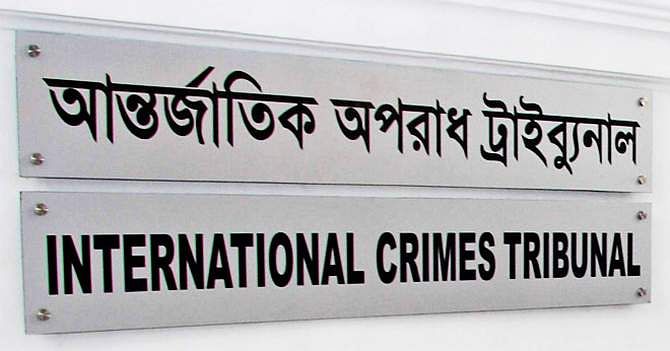Tried for war crimes not for political identity: Tribunal

The tribunal is trying people for their role and involvement in crimes against humanity during the Liberation War in 1971 not for their political identity, said a judge of International Crimes Tribunal-1 today before reading out the summary of judgement.
The tribunal also suggested the aggrieved party to go to the Appellate Division of the Supreme Court and refrain from throwing violent programmes or pressurising the judges to give verdict in their favour.
The three-member tribunal headed by Justice M Enayetur Rahim sat at the courtroom at about 11:10am. Its members are: judges Justice Jahangir Hossain and Justice Anwarul Haque
It is not possible to make each party happy in a criminal case, the tribunal chairman said.
In his five-minute introductory speech, Justice Enayetur Rahim said, “We give a verdict analysing evidence and testimony and providing explanation of [corresponding] act. If there is any deviation, a person can go to higher court legally.”
“We don’t expect that people who believe in rule of law will declare any violent programme if verdict goes against them,” he said adding neither party should create such situation that creates pressure on judges on special cases.
“After the verdict, we see reaction in one or two local media and some foreign media. In the way, the media present the verdict that the tribunal is trying country’s Islamic scholars or leaders of Islamic party,” he said.
“But it is not right,” the Tribunal chief added.
“We are trying people for their involvement in crimes against humanity during the Liberation War in 1971. We don’t consider who the person is or what is his political identity?” Justice Enayetur Rahim said.
He added, “Verdict cannot be changed by writing editorial or giving a speech. The aggrieved party can seek appeal to change verdict.”

 For all latest news, follow The Daily Star's Google News channel.
For all latest news, follow The Daily Star's Google News channel. 



Comments